We understand that this is a stressful time for everyone. To help you protect yourself and those around you, Nutricia is sharing a few simple rules from the World Health Organization (WHO). It is important to responsibly safeguard your health and follow these recommendations, since together we can limit the spread of the Coronavirus.
7 WAYS YOU CAN PROTECT YOURSELF AND THOSE AROUND YOU
1. Wash hands regularly
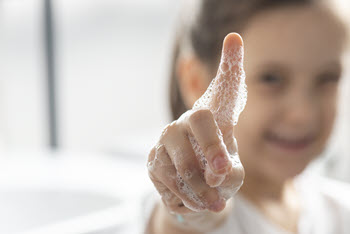 The Coronavirus is spread by human contact. Therefore, properly washing your hands with soap and water or a hand rub for more than 20 seconds is still the best way to protect against it. So, make it a regular routine before mealtimes, when coming in from outdoors and before and after meeting friends or family.
The Coronavirus is spread by human contact. Therefore, properly washing your hands with soap and water or a hand rub for more than 20 seconds is still the best way to protect against it. So, make it a regular routine before mealtimes, when coming in from outdoors and before and after meeting friends or family.
What does it mean for you? This will help eliminate traces of the virus that may be on your hands so they won’t infect you and anyone around you. In addition, please enforce hand washing for anyone entering into the same space as you – this can include family, helpers, the postman, etc. It is very important to explain to those around you why the washing of hands is crucial.
WHO’s handwashing guidelines: https://www.who.int/gpsc/clean_hands_protection/en/
2. Keep a social distance
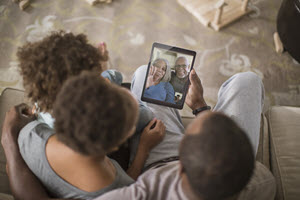 We all want to be near our family members to comfort them during these stressful times. But it is recommended that we minimize our visits to stop the spread of the Coronavirus. Therefore, please shorten or postpone visits or family gatherings to a later date.
We all want to be near our family members to comfort them during these stressful times. But it is recommended that we minimize our visits to stop the spread of the Coronavirus. Therefore, please shorten or postpone visits or family gatherings to a later date.
If you are around anyone that’s sick, avoid contact and maintain a safe distance. Because the virus is carried and passed-on by people, social distancing is proven to reduce the spread of the virus.
What does it mean for you? This doesn’t mean you shouldn’t stay in contact with your friends and family. Try to find other means to communicate, such as by phone or internet chatrooms.
3. Avoid touching the eyes, nose and mouth
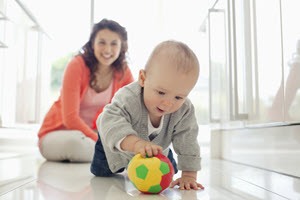 We tend to touch different surfaces throughout the day which may have the Coronavirus. Once on our hands, the easiest way for it to enter our body is through our eyes, mouth or nose. We can’t avoid touching surfaces, but we can avoid touching our faces and limit the potential passage of the virus into our body.
We tend to touch different surfaces throughout the day which may have the Coronavirus. Once on our hands, the easiest way for it to enter our body is through our eyes, mouth or nose. We can’t avoid touching surfaces, but we can avoid touching our faces and limit the potential passage of the virus into our body.
That’s why it helps to have the most-touched surfaces disinfected – doorknobs, tabletops, mobile phones, remote controls, steering wheels, handrails etc.
Also try and avoid touching your face, it’s not easy but can be done if you pay attention to your gestures.
What does it mean for you? Surfaces can be contaminated with the Coronavirus and once the virus is on our hands it can easily be transferred into the body via the mouth, nose or eyes when we touch our face.
4. Practice good respiratory hygiene
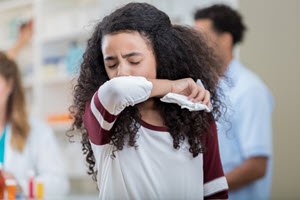 Make sure you and the people around you follow good respiratory hygiene. This means covering the mouth and nose with a bent elbow or tissue when coughing or sneezing. Then disposing of used tissues immediately.
Make sure you and the people around you follow good respiratory hygiene. This means covering the mouth and nose with a bent elbow or tissue when coughing or sneezing. Then disposing of used tissues immediately.
What does it mean for you? Droplets spread the virus. By following good respiratory hygiene, you protect yourself and the people around you from viruses such as cold, flu and Coronavirus.
5. Feeling sick? Seek medical care early
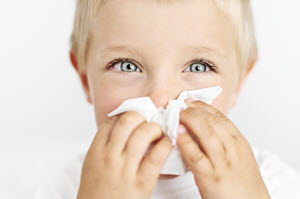 If you or anyone around you has early signs of the Coronavirus, such as a fever, cough and difficulty breathing, seek medical attention immeadiately, but stay away from the hospital or pharmacy to avoid further spread of the disease. It is best to self-isolate, call the doctor and follow the directions of your local health authority.
If you or anyone around you has early signs of the Coronavirus, such as a fever, cough and difficulty breathing, seek medical attention immeadiately, but stay away from the hospital or pharmacy to avoid further spread of the disease. It is best to self-isolate, call the doctor and follow the directions of your local health authority.
What does it mean for you? National and local authorities will have the most up-to-date information on the situation in your area. Calling before visiting your healthcare provider will allow them to quickly direct you to the right health facility. This will also protect you and help prevent further spreading of the virus.
It is better to self-isolate than risk passing on the Coronavirus if you or someone around you is feeling the symptoms of the virus.
6. Prepare food safely and hygienically
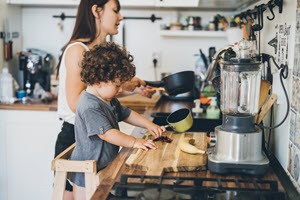 Use separate chopping boards for raw and cooked foods. Also wash your hands between handling raw and cooked food.
Use separate chopping boards for raw and cooked foods. Also wash your hands between handling raw and cooked food.
You don’t have to avoid meat. Just be smart and make sure all the meat is cooked thoroughly and handled properly during preparation.
What does it mean for you? It is important for anyone that is preparing food to follow safety procedures while cooking. In case of tube feeding always wash your hands with soap and water before handing tube feeding equipment. Always use the open pack of feed within 24 hours (see the label instructions) and change the administration sets (giving set) every 24 hours.
7. Stay informed and follow advice
With the explosion of coverage on mass media and social media, it is very important for you to be aware of the correct information on the Coronavirus outbreak. The most reliable and up-to-date information available is on the WHO website and through your national and local public health authority. Seek advice from trustworthy, reliable sources for you and your loved one.
For more information, please visit:
- https://www.who.int/emergencies/diseases/novel-coronavirus-2019/advice-for-public
- https://www.cdc.gov/coronavirus/2019-nCoV/index.html
This information is not intended to be a substitute for professional medical advice. Always seek the advice of a healthcare professional if you have any questions or concerns.






